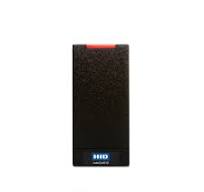In the realm of security and surveillance, Wired CCTV cameras stand out as a reliable and robust solution for monitoring and safeguarding homes, businesses, and public spaces. These cameras are known for their consistent performance and stable connection, making them a popular choice for those seeking continuous surveillance coverage.
One of the key advantages of wired CCTV cameras is their secure and uninterrupted transmission of video footage. Unlike wireless cameras that rely on Wi-Fi signals, wired CCTV cameras are connected directly to a recording device or monitor via cables. This direct connection ensures a stable feed without interference from other wireless devices or potential signal disruptions.
Moreover, wired CCTV cameras are often preferred for their higher resolution capabilities, providing clearer and more detailed images compared to some wireless counterparts. This enhanced clarity can be crucial in identifying individuals or incidents captured on camera, aiding in investigations or evidence collection.
Installation-wise, while wired CCTV cameras may require professional assistance to set up the cables discreetly, once installed, they offer a low-maintenance solution with minimal risk of signal loss or battery failure. This reliability makes them ideal for long-term surveillance needs where consistent monitoring is essential.
In addition to their performance benefits, wired CCTV cameras typically come with a range of features such as night vision capabilities, motion detection sensors, remote access options, and cloud storage for recorded footage. These features enhance the overall effectiveness of the surveillance system and provide users with added convenience and security.
Overall, wired CCTV cameras remain a popular choice for those prioritizing stability, reliability, and high-quality video footage in their security setups. With advancements in technology continuing to improve their functionality and ease of use, these cameras are likely to remain a cornerstone of modern surveillance systems for years to come.
Top 6 Advantages of Wired CCTV Cameras: Reliable, High-Resolution, and Cost-Effective Surveillance
- Stable and reliable video transmission due to direct wired connection
- Higher resolution for clearer and more detailed images
- Low risk of signal interference or disruptions compared to wireless cameras
- Long-term cost-effective solution with minimal maintenance required
- Enhanced security features such as night vision and motion detection sensors
- Compatible with various additional surveillance accessories for customized setups
7 Drawbacks of Wired CCTV Cameras: Flexibility, Installation, and Reliability Concerns
- Limited flexibility in camera placement due to cable length constraints.
- Professional installation may be required for concealing cables and ensuring proper setup.
- Vulnerable to power outages unless connected to a backup power source.
- Potential risk of cable damage or tampering, affecting camera functionality.
- Higher initial installation costs compared to some wireless CCTV cameras.
- Difficulty in relocating cameras once cables are installed, limiting adaptability.
- Susceptibility to signal interference or degradation over long cable distances.
Stable and reliable video transmission due to direct wired connection
The stability and reliability of video transmission offered by wired CCTV cameras are unparalleled, thanks to their direct wired connection. Unlike wireless systems that can be susceptible to signal interference or disruptions, wired CCTV cameras ensure a constant and secure feed of video footage without any interruptions. This direct connection not only guarantees a consistent performance but also provides peace of mind knowing that the surveillance system is always operational and capturing clear, uninterrupted footage for effective monitoring and security purposes.
Higher resolution for clearer and more detailed images
The higher resolution of wired CCTV cameras allows for capturing clearer and more detailed images, providing enhanced visibility and clarity in surveillance footage. This feature is particularly advantageous in scenarios where precise identification of individuals or objects is crucial, ensuring that even fine details are captured with sharpness and accuracy. The improved image quality offered by higher resolution enhances the overall effectiveness of the surveillance system, enabling better analysis of incidents and facilitating quicker response times when monitoring security footage.
Low risk of signal interference or disruptions compared to wireless cameras
In the realm of security and surveillance, one significant advantage of wired CCTV cameras is their low risk of signal interference or disruptions when compared to wireless cameras. By being directly connected to a recording device or monitor via cables, wired CCTV cameras maintain a stable and secure transmission of video footage without being susceptible to external factors that can affect wireless signals. This reliability ensures continuous monitoring and recording capabilities, making wired CCTV cameras an ideal choice for environments where consistent surveillance is paramount.
Long-term cost-effective solution with minimal maintenance required
Opting for wired CCTV cameras offers a long-term cost-effective solution with minimal maintenance requirements. Once installed, these cameras prove to be reliable and durable, reducing the need for frequent replacements or upgrades. Their direct connection to a recording device or monitor ensures a stable feed without the risk of signal loss or interference, saving on potential repair costs. With low maintenance needs and a track record of consistent performance, wired CCTV cameras present a practical and economical choice for those seeking a reliable surveillance solution in the long run.
Enhanced security features such as night vision and motion detection sensors
Enhanced security features like night vision and motion detection sensors are standout advantages of wired CCTV cameras. The night vision capability ensures round-the-clock surveillance, allowing the camera to capture clear footage even in low-light or dark conditions. This feature is crucial for maintaining security during nighttime hours when visibility may be limited. Additionally, the inclusion of motion detection sensors enables the camera to detect any movement within its field of view, triggering instant alerts and recordings. This proactive approach helps in monitoring suspicious activities and providing timely notifications, enhancing overall security measures effectively.
Compatible with various additional surveillance accessories for customized setups
Wired CCTV cameras offer the advantage of being compatible with various additional surveillance accessories, allowing for customized setups tailored to specific security needs. Whether integrating with PTZ (Pan-Tilt-Zoom) controls, external microphones for audio recording, or advanced motion sensors, the flexibility of wired CCTV cameras enables users to enhance their surveillance system with supplementary features that best suit their requirements. This compatibility with a wide range of accessories empowers users to create a personalized and comprehensive security solution that meets their unique monitoring objectives effectively.
Limited flexibility in camera placement due to cable length constraints.
One significant drawback of wired CCTV cameras is the limited flexibility in camera placement due to cable length constraints. Unlike wireless cameras that can be easily positioned in various locations without restrictions, wired cameras are tethered to their recording device or monitor by cables, which can restrict the range of motion and placement options. This limitation can make it challenging to install wired CCTV cameras in certain areas or angles where cable length may not reach, potentially compromising the overall effectiveness of the surveillance coverage.
Professional installation may be required for concealing cables and ensuring proper setup.
One downside of wired CCTV cameras is that professional installation may be necessary to conceal cables and ensure a proper setup. This can add to the initial cost of the surveillance system as professional installation services often come with a fee. Additionally, relying on professionals for installation means that users may have to schedule appointments and wait for the setup to be completed, potentially causing delays in getting the system up and running. The need for professional assistance can also be seen as a limitation for those who prefer DIY solutions or want more flexibility in setting up their security cameras.
Vulnerable to power outages unless connected to a backup power source.
One significant drawback of wired CCTV cameras is their vulnerability to power outages unless they are connected to a backup power source. In the event of a power failure, these cameras may cease to function, leaving gaps in surveillance coverage and potentially compromising security monitoring efforts. Without a reliable backup power solution in place, such as uninterruptible power supply (UPS) units or generators, the effectiveness of wired CCTV systems can be significantly impacted during unforeseen disruptions in electricity supply.
Potential risk of cable damage or tampering, affecting camera functionality.
One significant drawback of wired CCTV cameras is the potential risk of cable damage or tampering, which can adversely affect the camera’s functionality and overall surveillance capabilities. The physical cables connecting the camera to the recording device or monitor are vulnerable to environmental factors, vandalism, or accidental interference. If the cables are cut, damaged, or tampered with, it can disrupt the camera feed, leading to a loss of video footage and compromising the security of the monitored area. Regular maintenance and proper installation techniques are essential to mitigate this risk and ensure uninterrupted surveillance coverage with wired CCTV cameras.
Higher initial installation costs compared to some wireless CCTV cameras.
One notable drawback of wired CCTV cameras is their higher initial installation costs compared to some wireless CCTV cameras. The need for professional assistance to set up the cables and ensure proper connectivity can lead to increased installation expenses, especially in larger or more complex surveillance setups. This upfront investment may deter some users who are looking for a more budget-friendly security solution or those who prioritize cost-efficiency over other features. However, it’s important to weigh this con against the benefits of stability, reliability, and consistent performance that wired CCTV cameras offer in the long run.
Difficulty in relocating cameras once cables are installed, limiting adaptability.
One significant drawback of wired CCTV cameras is the challenge of relocating them once the cables are installed, which can limit their adaptability and flexibility in surveillance setups. The fixed nature of the cable connections means that moving or repositioning the cameras requires rewiring and potentially significant effort, making it a time-consuming and costly process. This lack of easy repositioning can be a hindrance in situations where surveillance needs change or where cameras need to be moved to address new security concerns or angles, impacting the overall versatility and adaptability of the system.
Susceptibility to signal interference or degradation over long cable distances.
One significant drawback of wired CCTV cameras is their susceptibility to signal interference or degradation over long cable distances. As the video signal travels through the cables connecting the camera to the recording device or monitor, it can be affected by various factors such as electromagnetic interference, signal attenuation, or cable quality issues. This can result in degraded video quality, loss of signal strength, or even complete signal disruption in extreme cases, compromising the effectiveness of the surveillance system. To mitigate this con, careful planning of cable routes, using high-quality cables and connectors, and periodic maintenance checks are essential to ensure optimal performance of wired CCTV cameras over extended distances.


